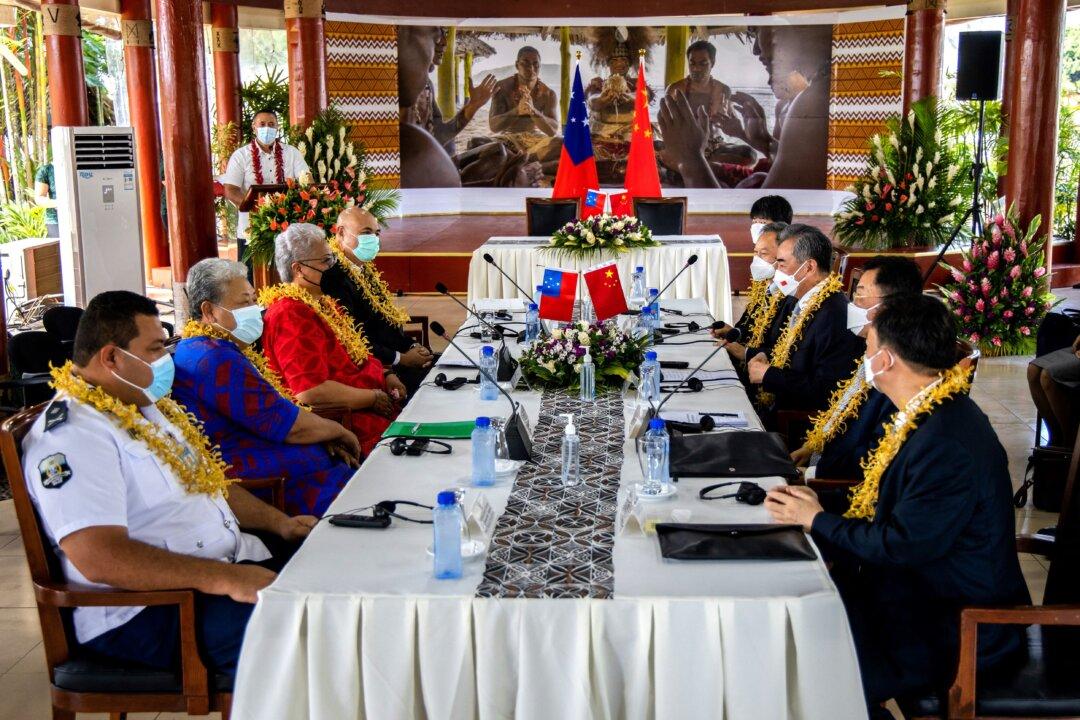As the United States shifts its strategic focus to the Indo-Pacific, the Chinese Communist Party (CCP) attempts to gain control over island nations in the region. China’s foreign minister introduced a broad-reaching security and trade pact during a recent visit to the South Pacific. But the United States and some Pacific nations raised concerns.
Chinese Foreign Minister Wang Yi is scheduled to visit eight Pacific countries—including Samoa, Tonga, Kiribati, Papua New Guinea, Vanuatu, Solomon Islands, Niue, and Vanuatu—between May 26 and June 4.





